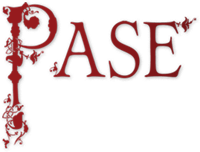Table of Contents
Top of page
Name
Summary
Distribution Map
Property List
Profile
Bibliography
Bottom of page
Cynestan 14
Cynestan ‘of Broadwood’ (Devon), fl. 1066
Male
DWP
4 of 5
Name
Summary
Cynestan 14 held four estates in Cornwall and Devon TRE, with a combined assessment of about 1¼ hides and a value of £9 15s.Distribution map of property and lordships associated with this name in DB
List of property and lordships associated with this name in DB
Holder 1066
| Shire | Phil. ref. | Vill | DB Spelling | Holder 1066 | Lord 1066 | Tenant-in-Chief 1086 | 1086 Subtenant | Fiscal Value | 1066 Value | 1086 Value | Conf. | Show on Map |
|---|---|---|---|---|---|---|---|---|---|---|---|---|
| Cornwall | 5,2,25 | Appledore | Chinestan | Cynestan 'of Broadwood' | - | Robert, count of Mortain | Reynold de Vautortes | 0.25 | 1.00 | 0.75 | B | Map |
| Cornwall | 5,2,26 | Bicton | Chinestan | Cynestan 'of Broadwood' | - | Robert, count of Mortain | Reynold de Vautortes | 0.25 | 0.25 | 0.15 | B | Map |
| Devon | 17,5 | Broadwoodwidger | Chinestan | Cynestan 'of Broadwood' | - | Judhael of Totnes | Nigel 'the man of Judhael of Totnes' | 0.41 | 6.00 | 4.00 | B | Map |
| Devon | 17,7 | Downicary | Chenestan | Cynestan 'of Broadwood' | - | Judhael of Totnes | Waldin | 0.38 | 2.50 | 2.00 | B | Map |
| Totals | ||||||||||||
Profile
All four of Cynestan 14’s estates lie in tributary valleys of the river Tamar. Appledore and Bicton are adjacent settlements in the Lynher valley in Cornwall while Broadwoodwidger lies in the Wolf valley and Downicary in that of the Carey but in the same Devon parish, and the two pairs of estates lie about 14 miles apart. Given this relatively close proximity and that DB records no other landholders with the unusual name Cynestan, it is far more likely that they were all held by the same individual than that the Devon and Cornish estates had different TRE holders.Although the Cornish estates passed to a subtenant of Robert, count of Mortain (Robert 9), whereas the Devon estates passed to subtenants of Iudichael of Totnes, the difference in successors is probably not significant because Robert held extensive lands throughout England whereas Iudichael held a more geographical fief with only one estate outside Devon. The difference in successors does not render it likely that there were two rather than a single TRE landholder called Cynestan with lands in the Devon-Cornwall border area.
Broadwoodwidger, at ½ hide, was the largest of Cynestan’s holdings and was called simply Bradwode in DB, and the simple form has therefore been assigned here as Cynestan 14’s toponymic byname; the modern form incorporates a manorial affix of thirteenth-century origin (Gover et al. 1931-2: 1 179).
Bibliography
Gover et al. 1931-2: J. E. B. Gover, A. Mawer and F. M. Stenton, The Place-Names of Devon, 2 vols. (Cambridge, 1931-2)
